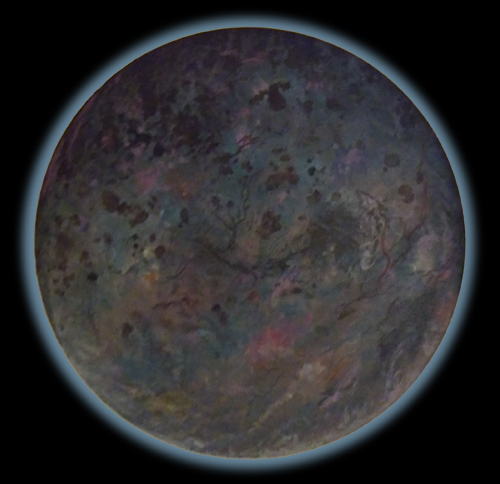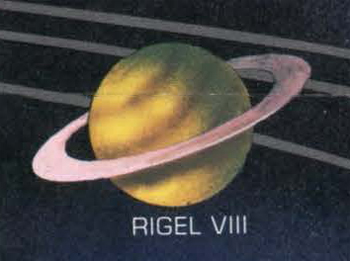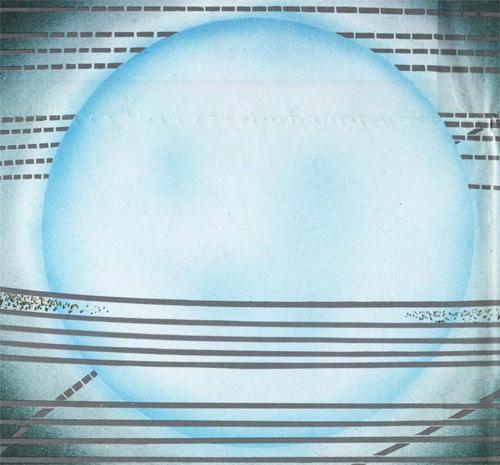Big Bang to 500th Century BCE (FASA)
From Trekipedia
(Redirected from FASA Chronology: Big Bang to 500th Century BCE)
Reference Stardate -10,000,000/0001 Through -520/9912
- RSD -10,000,000 (c.999,997,999 BCE): Rigel IV is first inhabited, according to the Muuly-Barsh projection.[1] In fact, both Rigel III and Rigel IV are inhabited by the Shour, an advanced spacefaring race. In the subsequent 10 million years, these worlds will produce three more native civilizations and be occupied by countless others.[2]
- RSD -1,000,000 through -15,000 (c.99,997,999-1,497,999 BCE): The Masters become the fourth native civilized race to rise on Rigel IV. An early understanding of philosophy and science allows them the strength to build a massive empire in the Orion Arm, which endures for more than a million years. They perform many experiments on life-forms and civilizations.[2]
- c.RSD -60,000 (c.6,000,000 BCE): The Arretans expand and colonize throughout the Milky Way galaxy.[3]
- RSD 12,500 (c.1,247,999 BCE): The Masters finish the extensive terraforming of Rigel III, while preserving Rigel IV as a workyard and kind of memorial.[2]
- RSD 11,500 (c.1,147,999 BCE): The Masters complete the cleaning and refueling of Rigel A. The helium core is fished out, with difficulty, and its material used for other projects—most notably the planets around Rigel B and C, both an experiment of the Masters in stellar kindling. The planets turn out so well the Masters get another powerful idea for memorializing themselves.[2]
- RSD 10,000/00 (c.997,999 BCE): On Rigel VII and Rigel VIII, the Masters plant new and promising lifeforms, which, in a million years or so, evolve into intelligent, starfaring, and reverent species that will acknowledge the long-dead Masters as gods. As the Masters' civilization was dying and their people simply dwindling away, they did a poor job genetically manipulating the Bodas, an intelligent species kept for pets. The resulting race would bear the stamp of shoddy workmanship in their shambling gait, harsh speech, and (according to the Masters' standards) imperfect reasoning and faulty moral sense. Shortly afterward, the Masters disappear.[2]
- RSD -9,900 (c.987,999 BCE): The accelerated Bodas, now calling themselves Rigellians, come to a complete understanding of themselves, the dead Masters, and their works. Their sun is unstable and will eventually go nova, destroying the entire system. The entire race is plagued by muscle and bone problems caused by their hasty manipulation, which, owing to the deliberate policy of the Masters, cannot be corrected. Moreover, the Masters have left them the custody of billions of pages of documents, tons of computer drives, and mounds of models, monuments, plaques, and other marks of dubious achievement and self-congratulation. Finding the idea of preserving their memory abhorrent, the Rigellians destroy most of it. As a way of making amends and redeeming their own consciences, they open Rigel to all races for trade and development.[2]
- RSD -9,700 (967,999 BCE): The Rigellians sponsor a number of cooperative ventures to educate other races, to correct the damages of the Masters in other star systems, and to regulate trade. Of all of them, only the Rigel Trade Authority does not fail. The Rigellians learn that they cannot teach entire alien cultures to avoid attractive mistakes, no matter how nobel their intentions.[2]
- RSD -9,500 (947,999 BCE): The Rigellians withdraw from public view and content themselves with occasional "corrective measures" applied from afar to cure the galaxy's most visible and obnoxious ills.[2]
- c.RSD -5,000 (c.500,000 BCE): The civilization of Arret is at its zenith.[3][1] A highly advanced civilization, the Arretans, who believe themselves as powerful as gods, destroy themselves in a world-devastating war.[3] The Rigellians have nothing to do with this. Still, they are pleasantly surprised at this brutal event, which restores their faith in justice. By this time, the Rigellians have become complacent and cynical, involving themselves less and less with alien races.[2]
- c.RSD -4,000 (c.397,999 BCE): Fett (Forerunner A) is at its zenith.[1]
- c.RSD -2,000 (c.197,999 BCE): Bursen (Forerunner B) is at its zenith.[1]
- RSD -1,500 (147,999 BCE): Rigel A begins to show signs of instability. The alarmed Rigellians delve into their past to rediscover the technology used by the Masters to rejuvenate their sun. They succeed in draining Rigel of its helium ash and replenishing its hydrogen atmosphere. Rigel may burn another million years without tampering.[2]
- c.RSD -1,000 through -900 (c.97,999-87,999 BCE): The Ena civilization, centered somewhere rimward of the Orion arm on the Klingon side, rises.[1]
- c.RSD -900 through -750 (c.87,999-72,999 BCE): The first interregnum, with no major starfaring civilizations, occurs. Rigel Trade Authority records begin.[1]
- c.RSD -750 through -550 (c.72,999-52,999 BCE): The DjKen civilization rises beyond what will later become the Romulan Neutral Zone.[1]
- RSD -520 (49,999 BCE): After hundreds of thousands of years of indifferent struggle, the ecosphere of Rigel IV finally dies. No plant, animal, or microbe remains on the surface. The Rigellians simply glaze over the lifeless ground and use it for parking space for more trading vessels. Artificial life support has already been working for nearly a million years already.[2]
Notes and References
- ↑ Jump up to: 1.0 1.1 1.2 1.3 1.4 1.5 1.6 Rogan, Peter R. (Author). The Orions: The Book of Common Knowledge. Star Trek: The Role Playing Game. Book 2008 . Cover art by David R. Deitrick. Illustrations by Jane Bigos, Dana Knutson, Todd Marsh, and Jim Nelson. FASA Corporation. 1987.
- ↑ Jump up to: 2.00 2.01 2.02 2.03 2.04 2.05 2.06 2.07 2.08 2.09 2.10 Rogan, Peter R. (Author). The Orions: The Book of Deep Knowledge. Star Trek: The Role Playing Game. Book 2008 . Cover art by David R. Deitrick. Illustrations by Jane Bigos, Dana Knutson, Todd Marsh, and Jim Nelson. FASA Corporation. 1987.
- ↑ Jump up to: 3.0 3.1 3.2 Roddenberry, Gene (Executive Producer). "Return to Tomorrow." Star Trek, Season 2, Episode 22. Directed by Ralph Senensky. Written by John Kingsbridge. Desilu Productions, 9 February 1968.


